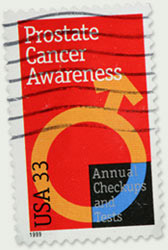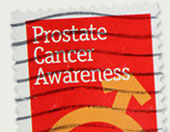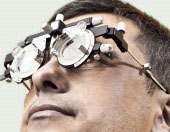Prostate health: Symptoms and risk factors
Posted in General Health & Wellness on
July 6, 2011.
Last modified on April 29, 2019. Read disclaimer.
Men, if you suffer from: enlarged prostate, frequent urination, difficulty in starting urination, continuous feeling of fullness after urination, weak or interrupted urinary stream or pain while urinating or ejaculating, you may be suffering from prostate problems include prostatitis (inflammation of the prostate, usually caused by bacterial infection), benign prostate hyperplasia, also called enlarged prostate or BPH (enlargement of the prostate gland to an unhealthy size as men's hormones naturally change during aging) or prostate cancer (a common cancer that responds best to treatment when detected early). Elevated levels of PSA (a substance produced by the prostate gland) can be an indicator of any of these three prostate conditions, though the test is not foolproof. Not only is the number important, but so is the trend over time (if the number is increasing and how rapidly).
The good news is that most prostrate problems are not a sign of cancer but you should visit your doctor to be sure. If it IS cancer, he or she may suggest taking a wait and see approach if the cancer is growing slowly or causing only minor symptoms. Other approaches include surgery, radiation therapy or hormone therapy but come with potential side effects.
What is the prostate? Why do we need a prostate?
The prostate is part of a man's reproductive system and is located in front of the rectum and under the bladder. About the size of a walnut surrounds the urethra, the tube through which urine flows.
The prostate changes size very little from birth until puberty, but at puberty it increases in weight and doubles in size. In general, the size of the prostate remains constant after puberty for the next 30 or more years. However, most men will develop non-cancerous enlargement of the prostate, medically known as benign prostatic hyperplasia or BPH.
+ Free Shipping & Returns on Eligible Items.
What is a man's risk of developing prostate cancer?
1 in 6 American men will be diagnosed with prostate cancer in their lifetime making it their most commonly diagnosed type of cancer and their 2nd leading cause of cancer death.
Who is most at risk of developing prostate cancer?
Exactly why some men develop prostate cancer and others is still unknown. The following factors may increase a man's risk of developing the disease:
- Diet: eating a high-fat diet that is low in fruits and vegetables
- Age: being over the age of 65. Prostate cancer is rarely found in men under age 45
- Family history: if your father or a brother has prostate cancer
- Race: African-American men are at a higher risk
- Genetics: the presence of certain genes as well as certain genetic changes puts one at elevated risk
Are there any preventive measures men can take?
Tests are being conducted to see if certain drugs and dietary supplements (vitamin E, selenium and green tea extract) may be beneficial in preventing prostate cancer.
For more information on the symptoms and treatment of prostate problems, visit
http://www.nia.nih.gov/healthinformation/publications/prostate.htm
http://www.webmd.com/prostate-cancer/guide/psa
http://www.cancer.gov/cancertopics/wyntk/prostate/page4

 Support for care givers
Support for care givers What's better: Organic, local or conventional produce?
What's better: Organic, local or conventional produce? What causes flatulence?
What causes flatulence? Prostate cancer symptoms and risk factors
Prostate cancer symptoms and risk factors Early detection of eye diseases
Early detection of eye diseases Reduce stress with a gratitude journal
Reduce stress with a gratitude journal Home energy savings checklist
Home energy savings checklist Quick tips for cutting your utility bills
Quick tips for cutting your utility bills